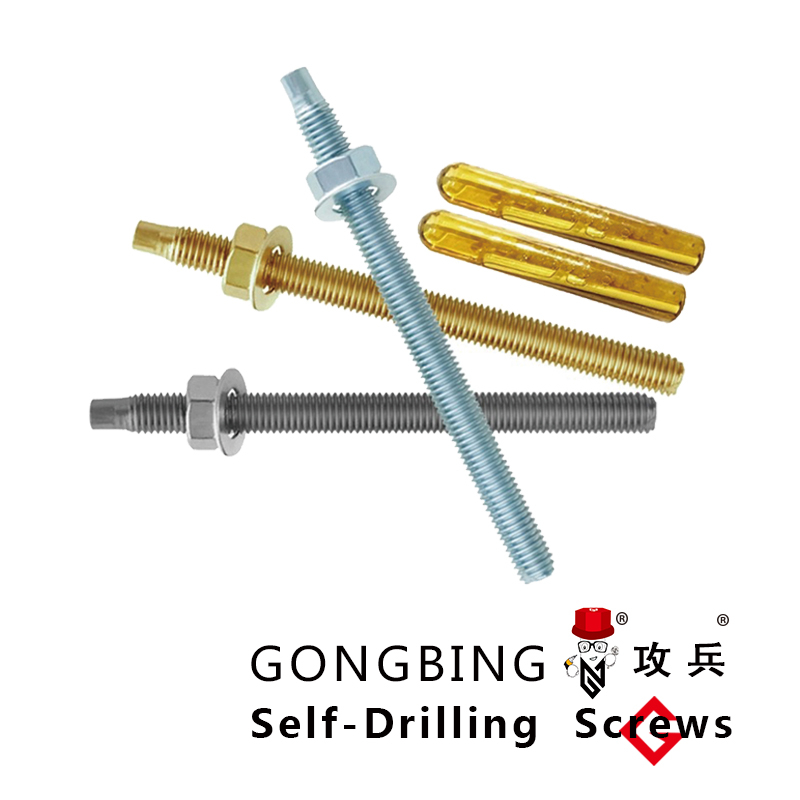Understanding Self-Drilling Roofing Screws for Efficient Roof Installation and Repair
Understanding Self-Drilling Roofing Screws A Comprehensive Guide
Self-drilling roofing screws have become an essential component in the modern construction and roofing industries. Designed to streamline the process of fastening materials, these screws offer numerous benefits that make them a popular choice among professionals and DIY enthusiasts alike. In this article, we will explore the characteristics, advantages, and applications of self-drilling roofing screws.
What are Self-Drilling Roofing Screws?
Self-drilling roofing screws, also known as self-tapping screws, are specialized fasteners that come with a drill-like tip, which allows them to create their own hole in the material they are being driven into. This feature eliminates the need for pre-drilling, making the installation process quicker and more efficient. These screws are typically made of durable materials such as stainless steel or zinc-coated steel, providing resistance to rust and corrosion, which is crucial for roofing applications exposed to the elements.
Key Features
1. Drill Point Design The unique tip design allows the screw to penetrate through roofing materials like metal and wood without requiring additional tools. This self-drilling capability significantly reduces installation time.
2. Thread Configuration Self-drilling screws have a distinctive thread design that provides superior grip and holding power. The threads can vary in length and pitch, depending on the specific requirements of the project.
3. Corrosion Resistance Many self-drilling roofing screws are coated with protective finishes, such as galvanized or polymer coatings, to ensure they withstand harsh weather conditions and resist corrosion over time.
4. Variety of Sizes These screws come in a range of sizes and lengths, making them suitable for various roofing materials and thicknesses. This versatility allows builders to choose the right screw for every job.
Advantages
self drilling roofing screws

The use of self-drilling roofing screws presents several benefits
1. Speed and Efficiency The elimination of pre-drilling saves significantly on labor and time, particularly on large roofing projects. Workers can install roofing panels or sheets quickly and efficiently.
2. Strong and Secure Installation The design of self-drilling screws provides excellent holding power, ensuring that roofing materials remain securely fastened, even in windy conditions.
3. Cost-Effectiveness While the initial cost of self-drilling screws might be slightly higher than traditional screws, the reduced labor time and increased durability often lead to lower overall project costs.
4. Ease of Use These screws are easy to handle and install, making them suitable not just for professionals but also for homeowners tackling DIY projects.
Applications
Self-drilling roofing screws are used in a variety of applications, including
- Metal Roof Installations Ideal for securing metal panels, self-drilling screws ensure a tight, secure fit that prevents leaks. - Wooden Structures When installing metal roofing on wooden frames, self-drilling screws provide a reliable fastening solution. - Industrial Roofing These screws are suitable for commercial and industrial roofing systems, providing the strength necessary to withstand heavy loads and adverse weather. - Solar Panel Mounting Self-drilling screws are also used in the installation of solar panel mounting systems, where strong, reliable fastening is critical.
Conclusion
In conclusion, self-drilling roofing screws represent a significant advancement in roofing technology. Their unique design and myriad advantages make them a go-to choice for both roofing professionals and homeowners. Whether you are undertaking a new roofing project or making repairs, investing in quality self-drilling roofing screws can result in a more durable, efficient, and cost-effective solution. As the construction industry continues to evolve, these screws will undoubtedly remain a staple in roofing applications.
-
Weatherproof Plastic Expansion Anchors for OutdoorNewsJun.06,2025
-
Sustainability in the Supply Chain: Eco-Friendly TEK Screws ProductionNewsJun.06,2025
-
Load-Bearing Capacity of External Insulation FixingsNewsJun.06,2025
-
Double Head Bolts: Enhancing Efficiency in Industrial MachineryNewsJun.06,2025
-
Corrosion Resistance in Chipboard Screws: Coatings for Wholesale DurabilityNewsJun.06,2025
-
Butterfly Toggle Bolts : Enhancing Structural ResilienceNewsJun.06,2025
